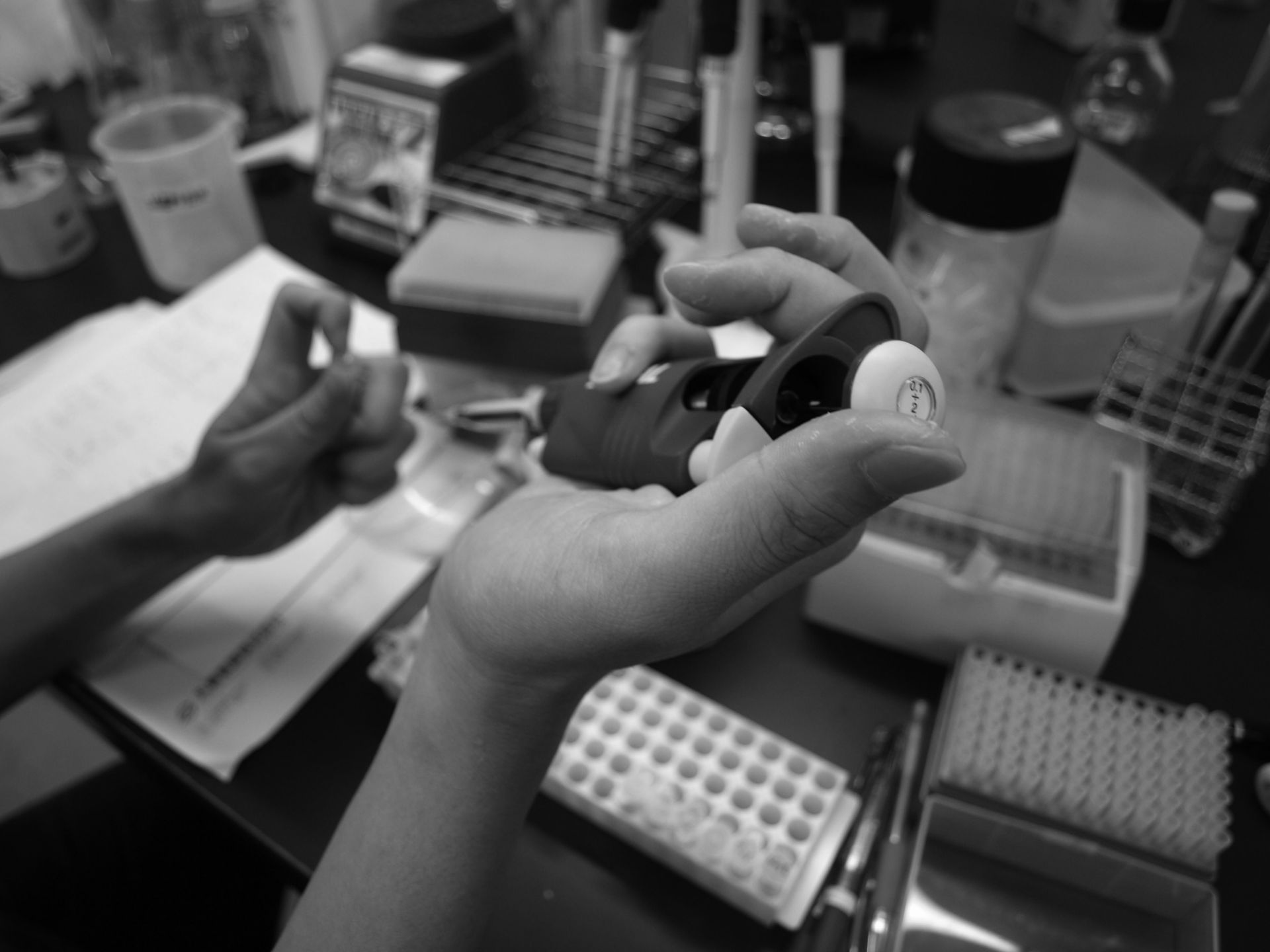Team:KIT-Kyoto/Test/Safety/aol
From 2014.igem.org
(Difference between revisions)
| (6 intermediate revisions not shown) | |||
| Line 25: | Line 25: | ||
</div> | </div> | ||
<ul class="submenu"> | <ul class="submenu"> | ||
| - | <li><a href=" | + | <li><a href="/Team:KIT-Kyoto/Test/Safety/aol">About Our Lab</a></li> |
| - | <li><a href=" | + | <li><a href="/Team:KIT-Kyoto/Test/Safety/ci">Check-In</a></li> |
| - | <li><a href=" | + | <li><a href="/Team:KIT-Kyoto/Test/Safety">Safety Form</a></li> |
</ul> | </ul> | ||
<ul id="nav5"> | <ul id="nav5"> | ||
| Line 44: | Line 44: | ||
<div class="ac"> | <div class="ac"> | ||
<p class="sentence"> | <p class="sentence"> | ||
| + | <h2>1</h2> | ||
<ul class="safety"> | <ul class="safety"> | ||
<li>Does your country use a four-part "Safety Level" rating system for laboratories? (The system might be called in English "Risk Levels", "Bio-Safety Levels", "Containment Levels", "Bio-Security Levels", or some similar name.) | <li>Does your country use a four-part "Safety Level" rating system for laboratories? (The system might be called in English "Risk Levels", "Bio-Safety Levels", "Containment Levels", "Bio-Security Levels", or some similar name.) | ||
| Line 49: | Line 50: | ||
<div class="answer">Yes. Level 4 is used for the most dangerous organisms. (True for most countries in Asia, the European Union, and North/South America. This is equivalent to the WHO system.)</div> | <div class="answer">Yes. Level 4 is used for the most dangerous organisms. (True for most countries in Asia, the European Union, and North/South America. This is equivalent to the WHO system.)</div> | ||
<li>What is the Safety Level of your lab? (Use the WHO numbering system, in which Level 4 is used for the most dangerous organisms.)</li> | <li>What is the Safety Level of your lab? (Use the WHO numbering system, in which Level 4 is used for the most dangerous organisms.)</li> | ||
| - | <div class="answer"> Level 1 (low risk, ~= WHO BSL 1)</div> | + | <div class="answer"><p class="checked">Level 1 (low risk, ~= WHO BSL 1)</p></div> |
</ul> | </ul> | ||
| + | <h2>2</h2> | ||
<ul class="safety"> | <ul class="safety"> | ||
<li>What type of work environments do you use to handle biological materials? Please check all that apply. </li> | <li>What type of work environments do you use to handle biological materials? Please check all that apply. </li> | ||
| - | <div class="answer"">Laminar flow hood / biosafety cabinet with open front</div> | + | <div class="answer""><p class="checked">Laminar flow hood / biosafety cabinet with open front</p></div> |
<li>What personal protective equipment do you use in your lab? Please check all that apply.</li> | <li>What personal protective equipment do you use in your lab? Please check all that apply.</li> | ||
| - | <div class="answer">Lab coats Gloves Safety glasses / goggles</div> | + | <div class="answer"> |
| + | <p class="checked">Lab coats</p> | ||
| + | <p class="checked">Gloves</p> | ||
| + | <p class="checked">Safety glasses / goggles</p> | ||
| + | </div> | ||
</ul> | </ul> | ||
| + | <h2>4</h2> | ||
<ul class="safety"> | <ul class="safety"> | ||
<li>How do you dispose of biological waste? (For example: liquid cell cultures, agar plates, used pipette tips.)</li> | <li>How do you dispose of biological waste? (For example: liquid cell cultures, agar plates, used pipette tips.)</li> | ||
| Line 97: | Line 104: | ||
</div> | </div> | ||
<!--メインコンテンツ終わり--> | <!--メインコンテンツ終わり--> | ||
| + | <style type="text/css"> | ||
| + | .checked{ | ||
| + | padding:2px 0 2px 25px; | ||
| + | background:transparent url("https://static.igem.org/mediawiki/2014/3/3d/Kit_Checked.png") no-repeat left 0.1em; | ||
| + | background-size:15px; | ||
| + | } | ||
| + | </style> | ||
</html> | </html> | ||
{{Team:KIT-Kyoto/footer}} | {{Team:KIT-Kyoto/footer}} | ||
{{Team:KIT-Kyoto/mobile}} | {{Team:KIT-Kyoto/mobile}} | ||
Latest revision as of 05:32, 4 October 2014



About Our Lab
1
- Does your country use a four-part "Safety Level" rating system for laboratories? (The system might be called in English "Risk Levels", "Bio-Safety Levels", "Containment Levels", "Bio-Security Levels", or some similar name.) If yes, which level is used for the most dangerous organisms?
- What is the Safety Level of your lab? (Use the WHO numbering system, in which Level 4 is used for the most dangerous organisms.)
Yes. Level 4 is used for the most dangerous organisms. (True for most countries in Asia, the European Union, and North/South America. This is equivalent to the WHO system.)
Level 1 (low risk, ~= WHO BSL 1)
2
- What type of work environments do you use to handle biological materials? Please check all that apply.
- What personal protective equipment do you use in your lab? Please check all that apply.
Laminar flow hood / biosafety cabinet with open front
Lab coats
Gloves
Safety glasses / goggles
4
- How do you dispose of biological waste? (For example: liquid cell cultures, agar plates, used pipette tips.)
We sterilize it by using the autoclave and send it to the disposal center in our university.
 "
"
